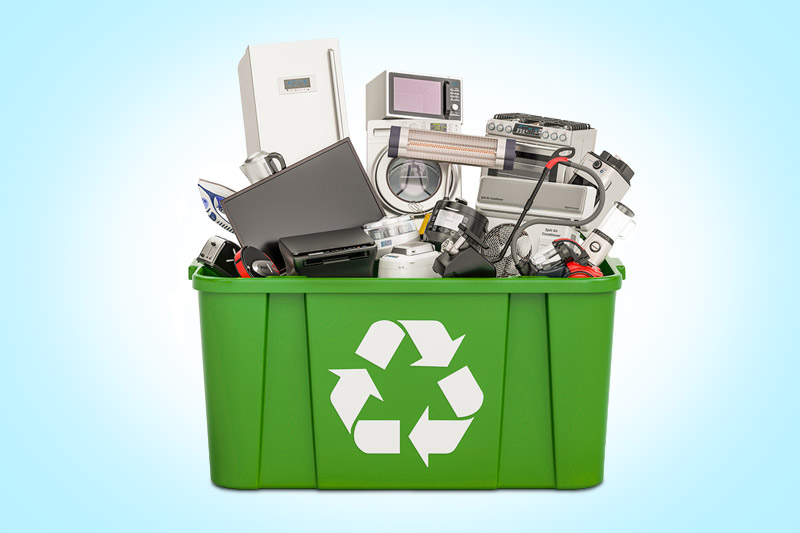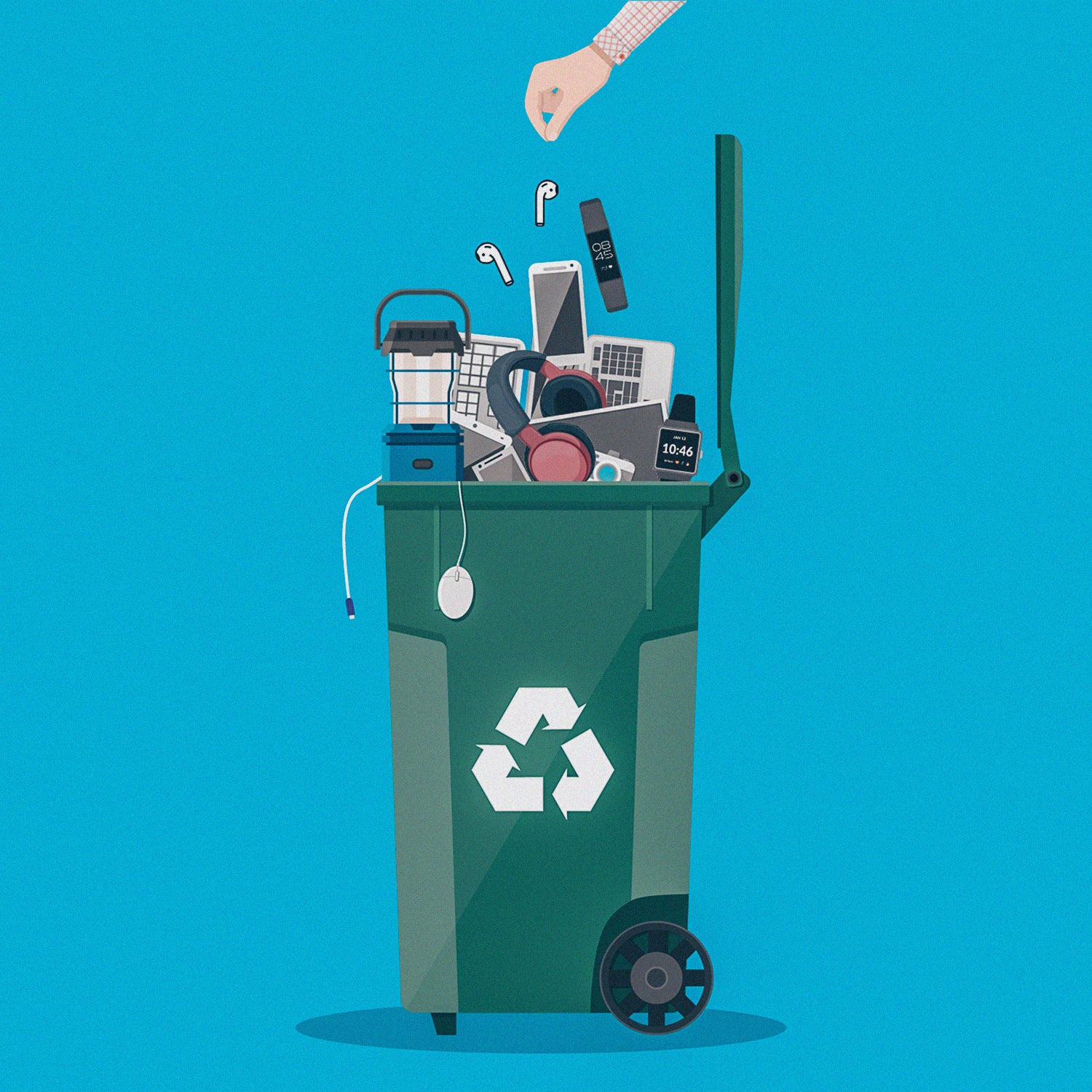Lasting Electronics Disposal: Guarantee Conformity with R2 Certification
Lasting Electronics Disposal: Guarantee Conformity with R2 Certification
Blog Article
Elevate Your E-Waste Management With R2 Accreditation: a Detailed Review
In the realm of liable digital waste administration, the value of applying effective approaches can not be overemphasized. As technology rapidly progresses, the demand for correct disposal and recycling of digital tools has become increasingly vital. One key approach to boost e-waste administration methods is by obtaining R2 accreditation. This qualification stands as a characteristic of quality in the area, representing adherence to strict requirements that guarantee ecologically audio techniques. By discovering the advantages and procedures related to R2 accreditation, a deeper understanding of exactly how it can transform e-waste management approaches arises, clarifying a course towards sustainability and ethical disposal practices.
Relevance of E-Waste Administration

When e-waste is not handled properly, these hazardous materials can permeate right into the ecosystem, creating harm to wild animals and potentially getting in the food web, posing dangers to human health. The improper disposal of e-waste adds to pollution and greenhouse gas exhausts, worsening climate adjustment and environmental degradation.

Benefits of R2 Qualification

First of all, R2 certification enhances integrity by showcasing an organization's commitment to lasting techniques. It guarantees consumers, partners, and stakeholders that the firm sticks to stringent criteria for e-waste management - r2 certification. This reliability can cause raised depend on and enhanced relationships with clients that focus on environmental duty
Secondly, R2 qualification assists mitigate risks related to improper e-waste disposal. By adhering to the rigorous guidelines stated by the certification, organizations can reduce the possibility of information breaches, environmental contamination, and lawful effects. This proactive approach safeguards the business's reputation and decreases possible liabilities.
Lastly, R2 accreditation shows a commitment to environmental stewardship - r2 certification. By responsibly managing digital waste with accredited processes, companies add to the conservation of sources, reduction of air pollution, and promotion of a circular economy. This commitment not only benefits the atmosphere however likewise lines up with progressing customer expectations for lasting company techniques
R2 Certification Process Review
Having developed the advantages of R2 qualification in advertising reputation, risk mitigation, and ecological stewardship, it is important to currently lay out the thorough procedure included in getting this certification. The R2 certification process begins with a complete testimonial of the organization's operational policies and procedures to ensure compliance with the R2 standard. This initial analysis is vital in recognizing any kind of voids that need to be attended to before proceeding better.
Once the organization's practices straighten with the R2 common demands, an independent third-party auditor conducts an on-site audit to review the implementation and effectiveness of these practices. This audit includes a detailed review of documents, interviews with staff, and physical examinations of facilities to validate compliance.
Complying with an effective audit, the organization gets a qualification choice based upon the auditor's findings. If approved, the organization is given R2 certification, demonstrating its dedication to liable e-waste administration. It is vital to keep in mind that maintaining R2 qualification calls for continuous compliance with the requirement's requirements and regular audits to make sure continued adherence to finest practices in e-waste recycling and disposal.
Secret Criteria for R2 Compliance
A crucial aspect of accomplishing R2 compliance is guaranteeing that all electronic waste (e-waste) handling centers fulfill rigid environmental and safety and security criteria. To abide by R2 requirements, organizations have to stick to key criteria that concentrate on accountable e-waste administration methods. These criteria consist of applying news a recorded environmental, wellness, and safety and security administration system, making certain the safe handling of data-containing devices, and performing complete downstream due diligence to track the final location of e-waste products.
Furthermore, R2 compliance requires the correct screening, refurbishment, and recycling of electronic devices to prolong its beneficial life and minimize ecological effect. Facilities seeking R2 certification should also focus on employee wellness and security by giving essential training, individual safety equipment, and a risk-free workplace. Furthermore, keeping detailed documents of e-waste handling tasks and consistently undergoing audits by approved certifying bodies are crucial parts of demonstrating ongoing conformity with R2 criteria.
Influences of Lasting E-Waste Practices
The implementation of sustainable e-waste practices according to R2 compliance not just makes sure ecological and safety criteria are satisfied but likewise dramatically influences the general lifecycle of digital items. By adhering to R2 criteria, electronic waste management processes come to be more efficient, minimizing the ecological impact of digital products. Lasting e-waste techniques help with the proper disposal of electronic parts, ensuring that hazardous products are dealt with responsibly and do not finish up contaminating the atmosphere.
Furthermore, welcoming sustainable e-waste practices advertises the round economic climate by facilitating the recuperation and reuse of beneficial materials from digital items. This not only preserves precious sources but additionally minimizes the need for raw product extraction, minimizing the environmental impact of electronic manufacturing. In addition, lasting e-waste techniques can contribute to task production in the recycling and refurbishment industries, fostering economic growth while promoting ecological responsibility. Generally, the fostering of lasting e-waste practices under R2 certification works as an essential action towards achieving a more ecologically sustainable electronics market.
Conclusion
Finally, applying correct e-waste management methods is critical for ecological sustainability and resource conservation. R2 accreditation plays a vital duty in ensuring responsible handling view it and disposal of digital waste. By sticking to the rigid standards set forth by R2 standards, companies can not only lessen their ecological effect however also add to an extra lasting future for generations to come.
One key method to raise e-waste management techniques is by achieving R2 certification. By exploring the advantages and procedures linked with R2 certification, a deeper understanding of how it can reinvent e-waste administration approaches emerges, shedding light on a course towards sustainability and moral disposal practices.
The R2 certification process begins with a complete evaluation of the organization's operational plans and treatments to ensure compliance with the R2 criterion. If authorized, the company is approved R2 certification, demonstrating its dedication to liable e-waste management. In moved here general, the fostering of sustainable e-waste methods under R2 certification offers as a crucial step towards attaining a more eco sustainable electronics sector.
Report this page